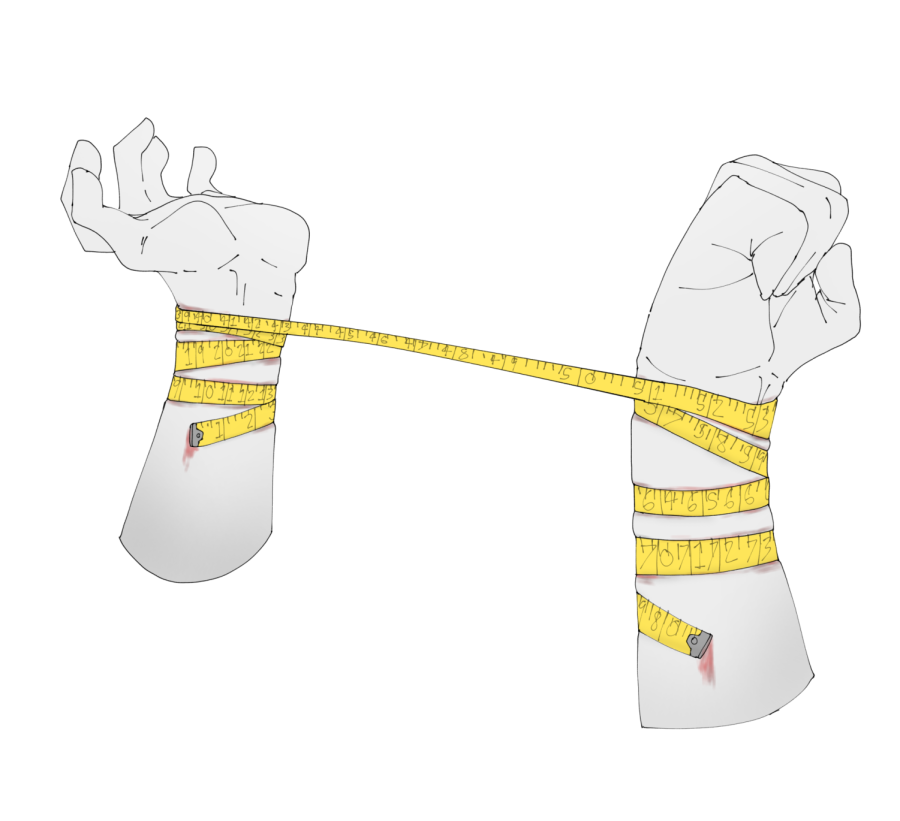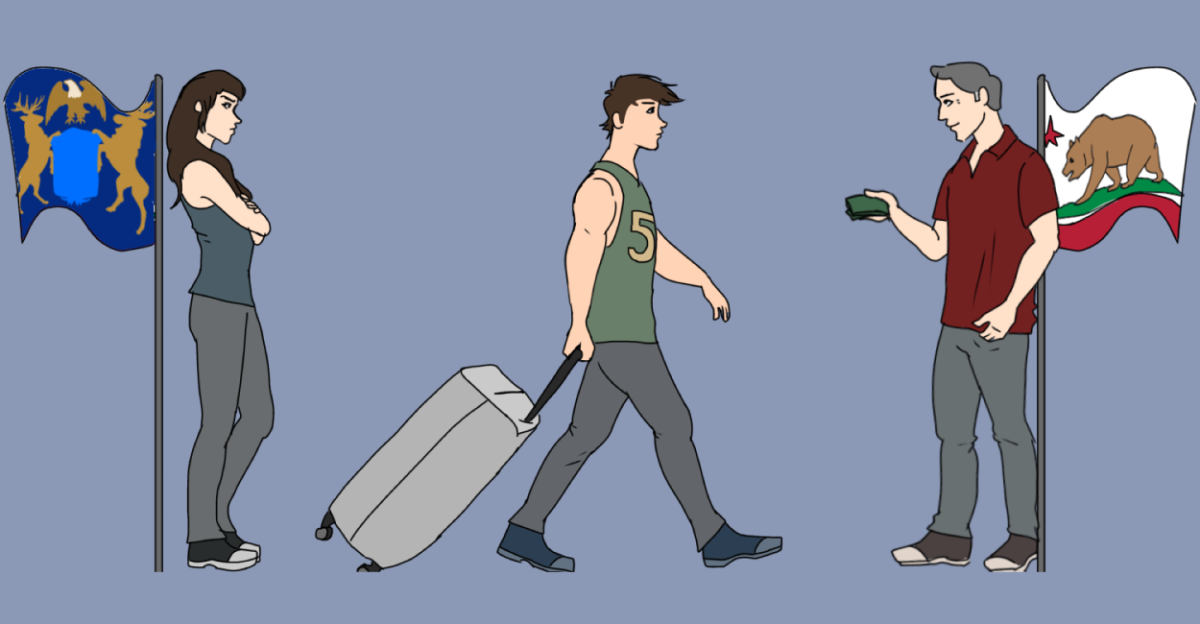[Opinion] Obsession with diets and dieting trends leads to variety of problems
Society pushes an obsession with diet culture. This obsession can be restricting on people’s lives.
February 13, 2023
It is the start of a new week, which means the start of a new diet – a plan to redirect eating habits and finally fit into that pair of jeans that have been sitting in the closet with the tags still on. This week’s diet is different and more restrictive than the previous ones. No carbs or added sugars are allowed and no dairy or meat either. The keto diet was last week, but that did not seem to be working out.
While dieting is not necessarily a bad thing, it can become dangerous when individuals begin to devote all of their time to thinking about their diet, causing them to be unable to live in moderation. It becomes an obsessive and miserable aspect of people’s lives that they may not be fully aware of. Diet obsession can lead to disordered eating, which is harmful to both the body and mind, and cause disastrous short and long-term implications.
Over the past century, a variety of new diets have arisen and gained popularity from their supposed benefits. The internet has become a place where people share their crazy, obsessive diets with the world and influence others to follow along. One diet that has become common is the ketogenic diet, referred to as keto, which is a low-carb, high-fat diet. This includes eating more cheese, butter and other unsaturated fats. Grains, starchy vegetables and high-sugar fruits are just some of the food items that are not permitted in the diet.
With keto, however, eating too much protein can interfere with ketosis, which, according to Cleveland Medical Clinic, is a metabolic state that occurs when your body burns fat for energy instead of glucose from carbohydrates. The keto diet, originally created as a treatment for epilepsy in the 1920s, has been taken out of proportion by diet-obsessedd individuals who want to lose weight quickly.
Eating protein is shown to be beneficial to the body, as it builds strength in muscles and bones, builds and repairs tissue and regulates hormones. According to Piedmont, a healthcare organization, when an individual reduces their protein intake for the sake of the keto diet, they are only hurting their bodies, especially in adolescents.
Following fad diets may get one to their desired body image, but they surely do not improve internal health. While one may have slimmed down or bulked up, they could have lost significant amounts of muscle or dysregulated their hormones. As a person frequently hops on different diet trends, they become more and more obsessed with their diet, and can develop an eating disorder.
Diet obsession is classified as an eating disorder called orthorexia nervosa, often just called orthorexia, which is further defined as an unhealthy focus on eating in a healthy way. Signs of orthorexia could include compulsive checking of ingredient lists and nutritional labels, an increase in concern about the health of ingredients and cutting out an increasing number of food groups, like all sugar, carbs, dairy and meat.
While checking food labels is not necessarily a bad thing, people with orthorexia become so fixated on this ideal version of “healthy eating” that they are essentially damaging their well-being, as stated by the National Eating Disorders Association.
Most often, young adults suffer from orthorexia. They are more inclined to limit their diets due to new trends that arise on the internet and old fad diet trends that older generations follow. Hearing phrases like, “carbs are bad for you,” “you really should not be eating that if you want to be skinny” or “you should add protein to every meal to make it healthier,” from parents or friends in the early ages of adolescence can send someone on a spiral through a life of diet obsession and disordered eating.
Additionally, adolescents are faced with the harsh realities society places on their body image. While the world is changing to be more body positive, there is a lingering stereotype that beauty is characterized by skinniness. Adolescents look up to people perceived as most beautiful and will make the effort to look like them. Whether this means going on a diet or stopping all eating completely, adolescents want to be perceived as part of the beauty standard.
According to a 2022 article by Michigan Medicine at the University of Michigan, the majority of adolescents are self-conscious about their appearance. Young adults are not only emotionally vulnerable but are also nutritionally vulnerable, meaning that the nutrients they consume during this stage of life are vital to balancing hormones, cognitive ability and psychological health.
Young adults are at risk of developing anorexia nervosa as a result of orthorexia. According to the Mayo Clinic, anorexia nervosa, known more commonly as just anorexia, is characterized by an abnormally low body weight, an intense fear of gaining weight and a distorted perception of weight.
“I’ve seen many clients who get so afraid of foods they see as ‘processed’ and ‘unclean’ that they end up eating hardly anything,” Christy Harrison, a registered dietitian, certified eating counselor and host of the popular podcast “Food Psych With Christy Harrison” said.
Young adults need to think about the possible negative health repercussions when taking on diet challenges. Since orthorexia could lead to worsened eating disorders in the future, it should be taken as seriously as disorders like anorexia and bulimia.
Adolescents are unknowingly suffering from the pressures of their parents, peers and the internet to look and eat a certain way. While they may think it is a new, silly diet, it is, in fact, another stressor on their bodies that can impact them negatively in the future.
To combat adolescent orthorexia and other eating disorders, schools should add more health classes into their curriculum. Students would be able to learn about eating disorders and how to prevent them. These classes should teach students about a healthy, moderated diet, but also how to diet in a way that does not diminish their mental health.
Orthorexia has become a prevalent problem in today’s society, specifically with adolescents. Parents, peers and internet users need to set a better example for young adults when it comes to having a healthy relationship with food. It is critical that adolescents be made aware of the effects of extreme diets and how it can lead to dangerous complications. Nutritionists, dietitians and health classes can help educate adolescents on what a moderated diet looks like and encourage them not to follow fad diets.
This story was originally published in the February 2023 Eagle Eye print edition.










